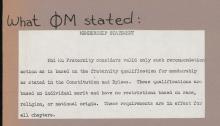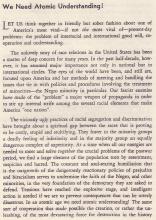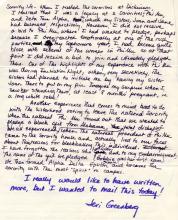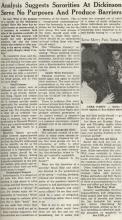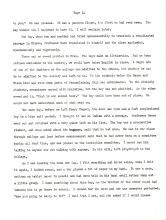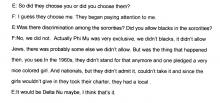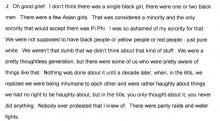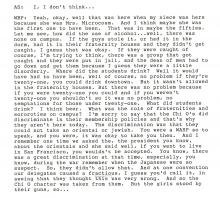Asian Girl Finds Difference
The only foreign student at Dickinson during the 1962-3 year was Hsiao Mei Tsou from Singapore. She remarks in this article on the differences between America and Singapore, most notably that girls never talked to boys back home. Very studious, she works often in the library but wishes that it were open later, but finds the Dickinson students very helpful. In Singapore, about half of children go to school and even less complete post secondary education. Hsaio loves the United States and thinks she wants to stay after graduation.


